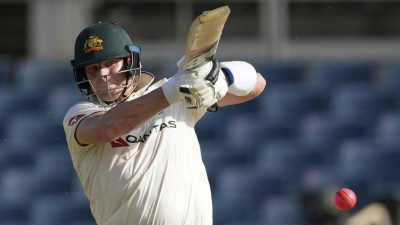Stay updated with the latest - Click here to follow us on Instagram
Notes on Rainfall
Even as Mumbai faces a 30 per cent daily water cut thanks to a weak monsoon this year...
When this scientist spoke about the complexities of monsoon modelling,there were many lessons for Mumbais administrators
Even as Mumbai faces a 30 per cent daily water cut thanks to a weak monsoon this year,and the MET department struggles to issue accurate forecasts,an award-winning scientist researching the countrys monsoon patterns was in Mumbai last week to explain the impact of global warming on the Indian monsoon.
Talking at a seminar organised by NGO Greenpeace at the Sophia Polytechnic college,on how climate change is altering the Indian monsoons,Dr K Krishnakumar warned: Oceans are warming faster,which will result in greater precipitation as early as the next decade. Spatial distribution of rainfall is also changing and therefore intense spells of rainfall in certain areas and droughts in others are going to increase. Krishnakumar is a scientist at the Indian Institute of Tropical Meteorology (IITM),Pune,and winner of the Norbert Gerbier-MUMM International Award 2009.
Krishnakumar was speaking on the basis of a series of modelling work his team has conducted at IITM,including the paper Unravelling the mystery of Indian Monsoon failure during El Niño for which he won the Norbert Gerbier award jointly with Balaji Rajagopalan,USA. The scientist is currently researching Monsoon Variability and Predictability in India,a thesis on why better understanding and prediction of monsoon rainfall variability studies on global connections is essential.
Speaking at the seminar,Krishnakumar rued over the poor urban planning of Mumbai stating the city cant compensate more than 300 mm of rainfall at a stretch. With the rainfall patterns changing drastically and heavy spells becoming a common feature,any intense spell of rain will results in flooding in parts of the city and traffic snarls, he explained. Delving on the complexities of monsoon modelling and global warming,the expert pointed out,Purely by recent natural phenomenon,global warming cant be explained. It is definitely anthropogenic from half a degree change in the last 100 years to 3 degree change in next century if we dont reduce emissions.
Human interference is clearly at work on accelerating the pace of global warming through CO2 emissions,he explained. He added that while there may be uncertainty in rainfall changes,temperature changes are certain. Referring to the anomalies in tracking rainfall model,which is very complicated,Krishnakumar said,Currently the monsoon data collection centres are about 300 km apart in the country. It is now becoming a matter of importance to use regional climate models to make regional prediction possible in the future.
Discussing the impact of climate change on agriculture,the scientist said that while rainfall or drought has obvious effect over farmlands,a temperature rise of even one degree could impact agricultural yield by 10 percent.
Along with Dr Jeevananda Reddy,scientist of Crops Research Institute for the Semi-Arid Tropics,Krishnakumar discussed the impact the unpredictability of the rains,intense rainfall,monsoon breaks,storms and flooding will have on agriculture,rural communities,the economy and urban planning.







